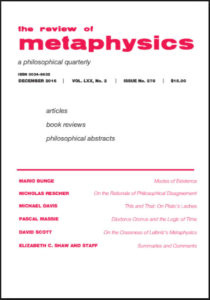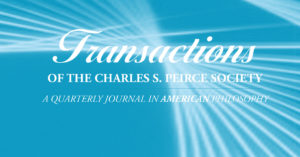
“In Rawls, Dewey and Constructivism, Eric Weber examines and critiques John Rawls’ epistemology and the unresolved tension – inherited from Kant – between Representationalism and Constructivism in Rawls’ work. Weber argues that, despite Rawls’ claims to be a constructivist, his unexplored Kantian influences cause several problems. In particular, Weber criticises Rawls’ failure to explain the origins of conceptions of justice, his understanding of “persons” and his revival of Social Contract Theory. Drawing on the work of John Dewey to resolve these problems, the book argues for a rigorously constructivist approach to the concept of justice and explores the practical implications of such an approach for Education.”
Read Chapter 1, excerpted from the book.
Endorsements
“Eric Weber provides a well considered and carefully crafted analysis of the work of John Rawls from a Pragmatist perspective. Chapter six alone, ‘Dewey and Rawls on Education,’ is worth the price of admission.”
– Larry A. Hickman, Center for Dewey Studies, Southern Illinois University, USA
“Eric Thomas Weber’s comparative study identifies a deep Kantian tension between constructivism and representationalism in Rawls. His well informed, very clear and persuasive critique of Rawls highlights the many resources of Dewey’s constructivism and constructivist epistemology for democratic political philosophy.”
– Tom Rockmore, Duquesne University, USA
Reviews

— Tom Rockmore, Notre Dame Philosophical Reviews
“Weber’s Rawls, Dewey and Constructivism provides a welcome addition to the Rawls literature by offering a Deweyan critique of,and alternative to, Rawlsian constructivism… In the contemporary political and economic climate, Weber’s call for strengthening the American tradition of public, humanistic education is refreshing.”
— Nicholas Tampio, H-Net Reviews: Humanities and Social Sciences Online

— Seth Vannatta, The Review of Metaphysics
“Weber’s critique is … robust[,] judicious and collegial throughout… Weber has delivered a powerful [case].”
— Richard Cotter, Political Studies Review

— Torjus Midtgarden, Transactions of the Charles S. Peirce Society




 About Me
About Me